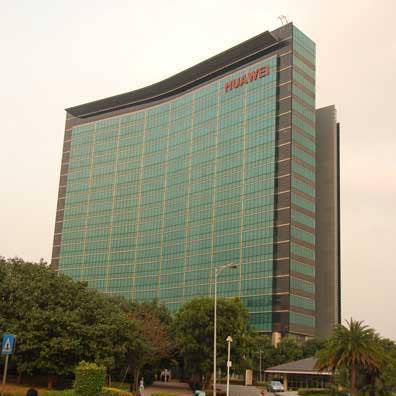White House Seeking To Cut Out Huawei On 5G: Report
A project is reportedly under way to create 5G network software that could help to displace Huawei equipment.

The White House is reportedly working with companies including Dell Technologies, Microsoft and AT&T to develop 5G network software that could provide an alternative to technologies from Huawei.
The Chinese company, which is a dominant maker of equipment for high-speed 5G networks, has faced increasing scrutiny from U.S. officials who believe the company's products pose a national security risk. Huawei has denied the allegations.
[Related: CES 2020 Took A Big Leap Toward The 5G Future]
Larry Kudlow, a top economic adviser to President Donald Trump, discussed the 5G network software project with The Wall Street Journal. Kudlow said that the White House’s goal is "to have all of the U.S. 5G architecture and infrastructure done by American firms, principally,” according to the report.
Kudlow reportedly mentioned that Dell, Microsoft and AT&T are involved in the project. Microsoft declined to comment, and AT&T did not immediately respond to a request for comment. Dell responded with a statement saying that "Dell Technologies, including VMware, works with governments and carriers around the world in support of many modern technology solutions. We are actively supporting 5G and the rapid deployment of 5G services and are excited about the opportunities it presents."
The U.S. effort seeks to create 5G network software that can run on equipment "from nearly any hardware manufacturer," reducing or eliminating the need for Huawei's technologies, the report said. But the project is in a "preliminary stage,” according to the Journal report.
The effort appears to represent an escalation of the attempts by U.S. officials to cut Huawei out of the country. Andy Purdy, chief security officer at Huawei Technologies USA, said in a statement provided to CRN that the move "will negatively impact the benefits that can be realized by 5G in the U.S."
Purdy urged the U.S. government to encourage American companies to license Huawei's 5G technology instead.
"Unless the new products include 5G IP licensed from Huawei (for hardware and software), the combined product will be one to two years behind the comparable Huawei products in terms of functionality and assurance," Purdy said in the statement.
The move by the White House seems to show that politicians in the U.S. are deciding which companies should get "country support" over others, which could turn out to be dangerous, said a solution provider executive who asked to not be identified.
"The natural process is usually a public bid and companies are then selected based upon price and functionality," the solution provider executive said.
In addition, "Dell and Microsoft have no background in this technology, but I assume could ramp up," the executive said.
Huawei has a limited presence in the U.S., with its equipment used by network operators in some rural communities. Huawei has operators as customers in states including Illinois, Colorado, Pennsylvania, Oklahoma, Tennessee, Oregon, Nebraska and Utah, said Tim Danks, vice president of risk management and partner relations at Huawei, in an interview with CRN in January.
Danks said that Huawei had at one point been expecting to work with its current U.S. customers on 5G.
"We definitely expected to be able to work with our existing wireless customers in the U.S. to continue to evolve their networks," Danks said.
He added that in these rural markets, “some of them wouldn't have networks today if it wasn't for us.”
"They wouldn't wouldn't be able to afford the equipment or they wouldn't be able to afford the service,” Danks said. “For those operators, we had just hoped that we would be able to take them to the next generation as well."
Last May, the U.S. Commerce Department added Huawei to its so-called entity list that prohibits technology purchases from U.S. companies without government approval.
The agency said the decision stems from a review of information showing that there is a "reasonable basis to conclude that Huawei is engaged in activities that are contrary to U.S. national security or foreign policy interest." This includes alleged criminal activities—among them, trade secret theft and wire fraud, according to the agency.